
Gender Gap Reversal in Learning and Gender-Responsive Teaching in Cambodia
This study investigates the emerging reversal of gender gaps in Cambodian education, where girls now outperform boys in enrolment and learning outcomes at primary and lower secondary levels. Drawing on quantitative data from SEA-PLM and PISA-D assessments and qualitative insights from key informant interviews, the research explores national policie...
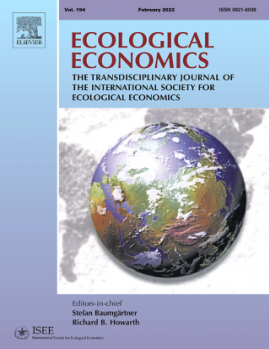
Water scarcity and support for costly institutions in public goods: Experimental evidence from Cambodia
Voluntary contributions to public goods are vulnerable to free riding. A potential solution is the implementation of a costly institutional arrangement that deters free riding behavior. In this paper, we analyze to what extent resource users are willing to bear those costs and vote in favor of costly institutions. We carried out lab-in-the-field ex...
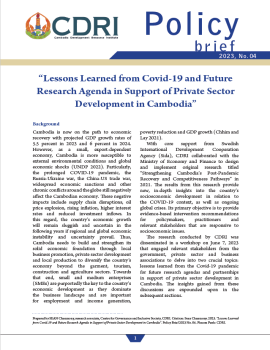
Lesson Learned from Covid-19 and Future Research Agenda in Support of Private Sector Development in Cambodia
Cambodia is now on the path to economic recovery with projected GDP growth rates of 5.5 percent in 2023 and 6 percent in 2024. However, as a small, export-dependent economy, Cambodia is more susceptible to external environmental conditions and global economic shocks (UNDP 2022). Particularly, the prolonged COVID-19 pandemic, the Russia-Ukraine war,...
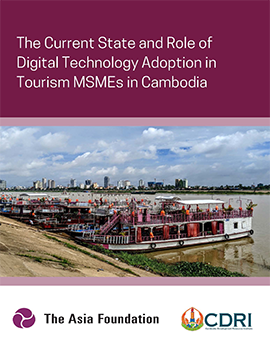
The Current State and Role of Digital Technology Adoption in Tourism MSMEs in Cambodia
The majority of businesses in Cambodia are micro, small, and medium-sized enterprises (MSMEs), which account for 99.9 percent of all businesses and a sizable portion of employment in the private sector. The adoption of digital technology (DT) among Cambodian MSMEs is still uneven and relatively low, despite the fact that it has become an essenti...
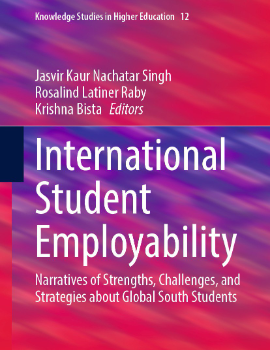
The Effects of International Experience on Self-Perceived Employability among Cambodian Students in China
This paper investigates the correlation between international experience in China and the self-perceived employability of Cambodian students using an explanatory mixed-methods approach. The findings suggest a positive correlation between international experience and students’ self-perceived employability, with technical knowledge and skills acquisi...
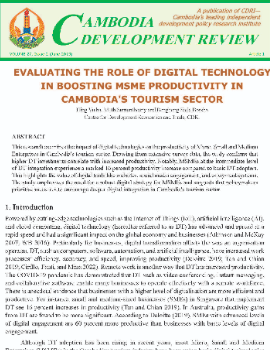
Evaluating the Role of Digital Technology in Boosting MSME Productivity in Cambodia's Tourism Sector
This research examines the impact of digital technologies on the productivity of Micro, Small and Medium Enterprises in Cambodia's tourism sector. Drawing from extensive survey data, the study confirms that higher DT investments correlate with increased productivity. Notably, MSMEs at the intermediate level of DT integration experience a marked 16...
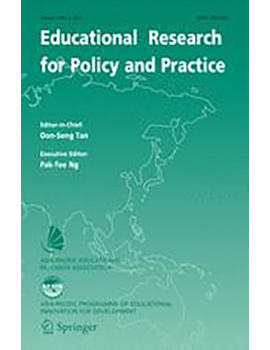
Upper Secondary School Tracking and Major Choices in Higher Education: To Switch or Not to Switch
This study aims to investigate the characteristics of students who switch versus those who do not switch when they transition from upper secondary to higher education. The data from 1338 students randomly selected from 21 HEIs in Cambodia in 2020 found that upper secondary school students are more likely than not to switch academic majors when they...
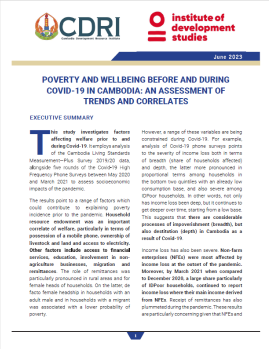
Poverty and Wellbeing Before and During Covid-19 in Cambodia: An Assessment of Trends and Correlates
This study investigates factors affecting welfare prior to and during Covid-19. It employs analysis of the Cambodia Living Standards Measurement—Plus Survey 2019/20 data, Frequency Phone Surveys between May 2020 and March 2021 to assess socioeconomic impacts of the pandemic. The results point to a range of factors which could contribute to expla...
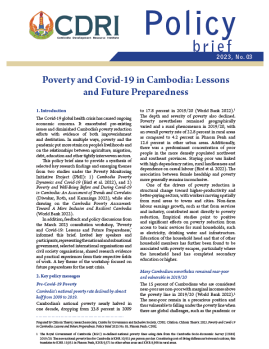
Poverty and Covid-19 in Cambodia: Lessons and Future Preparedness
The Covid-19 global health crisis has caused ongoing economic concerns. It exacerbated pre-existing issues and diminished Cambodia’s poverty reduction efforts with evidence of both impoverishment and destitution. In multiple ways, poverty and the pandemic put more strain on people’s livelihoods and on the relationships between agriculture, migratio...
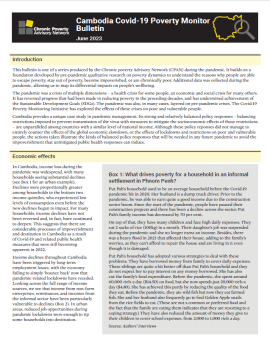
Cambodia Covid-19 Poverty Monitor Bulletin
This bulletin is one of a series produced by the Chronic poverty Advisory Network (CPAN) during the pandemic. It builds on a foundation developed by pre-pandemic qualitative research on poverty dynamics to understand the reasons why people are able to escape poverty, stay out of poverty, become impoverished, or are chronically poor. Additional da...
